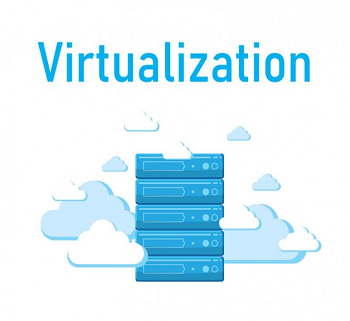Server Virtual Solutions
According to statistics, small and medium-sized enterprises make only a fraction of the power of their servers. But they still spend hundreds of thousands of dollars on server purchases and tens of thousands of dollars a month on putting their servers in a server park.
If you need a cost-effective solution, the best solution for your business will be a virtual server. You don’t have to buy and operate your server to make your company’s IT system work efficiently and securely. Keep reading to learn more about virtual server solutions.
Virtual server service spares you and your company the burden of purchasing your server computers and building the proper operating infrastructure.
The provider gives you capacity for your company’s software-implemented server on their high-performance servers. As a result:

- You only pay for the server capacity you use
- You don’t have to spend on maintaining a physical server
- You don’t need to scale the server several years in advance
- The server capacity used can be increased in small increments at any time according to the needs
- No variable, additional usage fee, only the fixed amount specified in the contract
- Real-world, unique scaling capability, even without downtime
What are the key benefits of Virtual server solutions?
- Low physical server
- Better access
- Improved performance
- High security
- The warranty is not outdated.
1. Low physical server
The first advantage of a virtual server is clear. Since many virtual machines can operate on the same physical server, you eliminate the need to buy and run many servers, saving a significant portion of the cost. Many servers are too big in traditional IT infrastructure to avoid the pressures associated with overload. Therefore, grouping several virtual machines in one place makes it better to use the virtual server.
2. Better access
Today, virtualization solutions have increased the desire to use virtual machines. The realization (even without stopping) that it is possible to move a virtual machine from one physical server to another adds to its advantages. This feature is an essential factor in increasing the level of access to your services. Using two physical servers doubles the virtualization infrastructure. If a problem occurs on either of the two servers, virtual devices will be automatically transferred to the second server.
3. Improved performance
By virtualization solutions, we distribute workload between servers. When the work pressure of a virtual machine is too high, the rest can use a more private physical server. Critical tasks can continue to work well by deploying more CPU, memory, and disk space resources. Therefore, the experts can program the size of virtual machines according to the tasks they have to perform.
4. High security
In traditional IT infrastructure, file sharing and messaging depend on the same server. Eventually, if the email is infected with malware, all other services hosted on this machine will also be compatible. We can separate different functions from a physical server to several virtual machines by using virtual servers. Consequently, all these services get separated from each other hence the vulnerability of one of them does not affect the rest.
5. The warranty is not outdated.
As part of a computer systems service, users often prefer to work on a dedicated server, as we configure it in a specific and customized way. Ensuring the recovery and upgrade of this dedicated server, which is used only by one application, is often fruitless. The P2V (Physical to Virtual) tool makes it possible to convert most physical servers into virtual machines. After doing so, your virtualized ERP server can be moved from a device to a new server at the end of its life through just a virtual machine.
What are some of the services from virtual server solutions?
- Installing and permanently maintaining the operating system and related essential services on the server
- Automatic monitoring of the correct operation
- In cooperation with a member, it carries out the transfer of data from an existing server
- Provides support to authorized persons through a helpdesk
- Respects the security and privacy of the data on the server
Types of virtual servers are available with J and J Technical Services
The usual option is a public-based virtual server, a multi-tenant environment appropriate for various needs. Consider a dedicated virtual server option if you need a single-tenant environment. The dedicated virtual server option is excellent for applications with higher resource demands.
When discussing the basics of setting up a virtual server, our experts recommend having multiple visitor operating systems, as each non-physical computing structure requires its unique software installation. For example, you might have an operating system for Linux and another operating system for Windows. These operating systems would benefit your different customers who need to run other applications. If your app doesn’t support a particular operating system, you can use a different one.
Give us a call today for efficient virtual server solutions.

Comments
Post a Comment